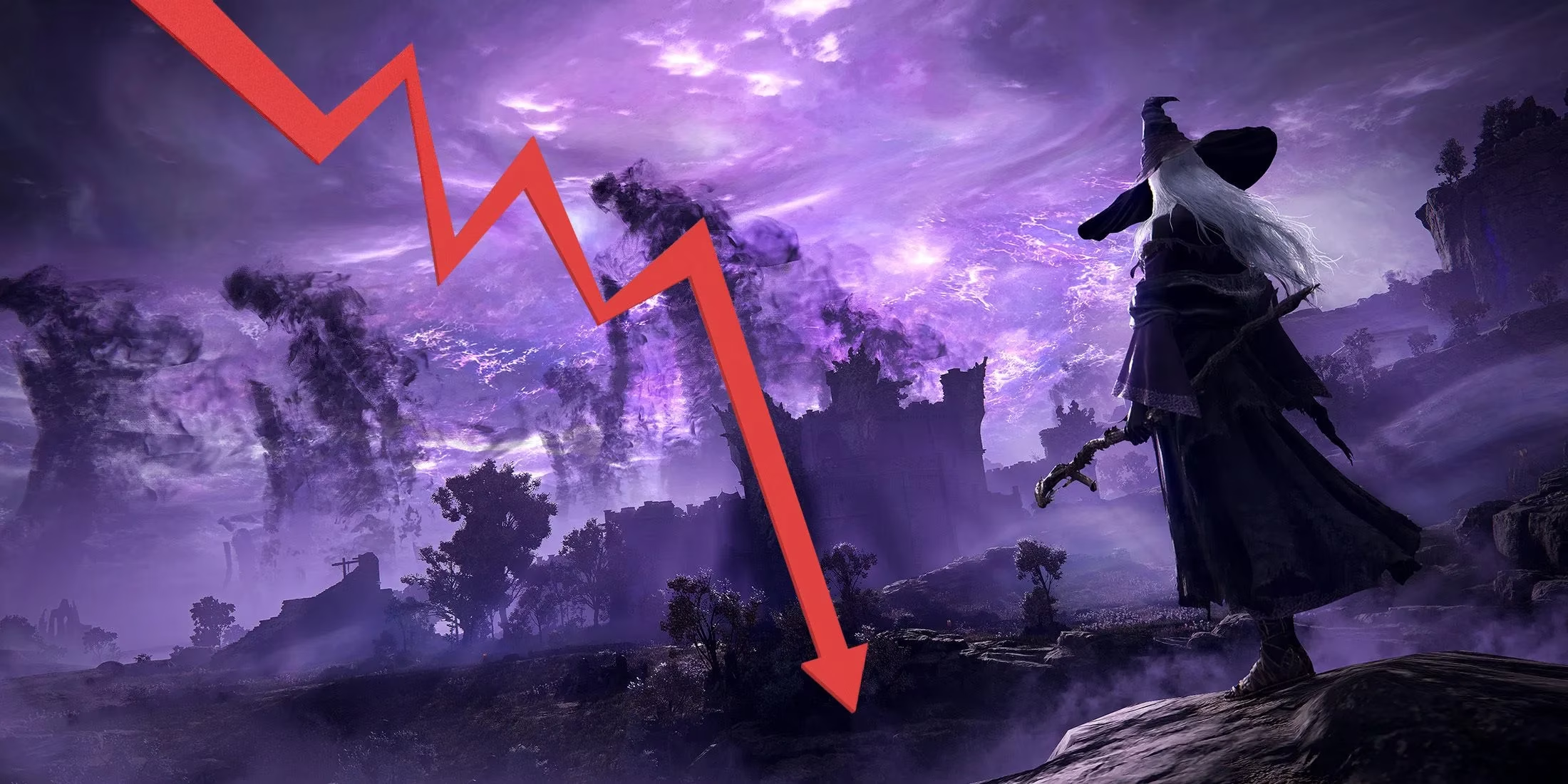
Elden Ring Nightreign finds itself navigating turbulent waters as its Steam player count plummets to a mere 17.81% of its May peak, settling at just 55,862 concurrent users according to recent SteamDB data. This stark decline—nearly 82% in two months—raises eyebrows across the gaming community, especially when contrasted with the original Elden Ring's surprisingly resilient 52,589 players despite being three years old. FromSoftware's experimental pivot toward mandatory three-player co-op in this budget-priced ($39.99) spin-off appears to be a double-edged sword; while the game launched with a respectable 313,593 peak concurrent players, it never approached the original's monumental 953,426 record. Yet calling this a failure would be premature. Unlike live-service titles that demand perpetual engagement, Nightreign functions perfectly well as a solo or occasional co-op experience—its design philosophy allowing players to dip in and out between updates without FOMO pressure.
🔍 Breaking Down the Numbers
Let's examine how Nightreign stacks against its predecessor:
| Metric | Elden Ring (Original) | Elden Ring Nightreign |
|---|---|---|
| All-Time Peak | 953,426 | 313,593 |
| Current 24h Peak | 52,589 | 55,862 |
| Price Point | $59.99 | $39.99 |
| Core Design | Solo Focus | 3-Player Co-Op |
These figures reveal fascinating contradictions. Though Nightreign's retention seems concerning at first glance, it actually outperforms the original in current daily engagement—a noteworthy feat for a non-sequel. The multiplayer-centric model inherently experiences sharper drop-offs, as coordinated group play demands higher commitment than solo adventures. Still, comparing a fledgling title to Elden Ring's cultural phenomenon is perhaps unfair; few games ever reach such zeniths.
⚔️ The Co-Op Conundrum
Nightreign's identity crisis plays a pivotal role here. Designed as a shared journey through an alternate Lands Between, its three-player structure creates logistical friction:
-
Scheduling headaches for adult players with limited time
-
Matchmaking imbalances when facing brutal bosses
-
No scaling options for solo or duo playthroughs
This rigidity likely contributed to the steep decline. Yet calling it "dead" ignores context—many acclaimed multiplayer games like Deep Rock Galactic or Monster Hunter see similar post-launch dips before stabilizing through updates.
🛠️ July's Game-Changing Update
The upcoming July 30 patch introduces Duo Expeditions, addressing core complaints by enabling two-player campaigns without random matchmaking. This quality-of-life shift could significantly impact retention by:
-
Lowering entry barriers for casual players
-
Encouraging lapsed veterans to return
-
Creating intimate cooperative dynamics
Additional unannounced content expansions are rumored for late 2025, potentially introducing new regions or boss rush modes. Whether these moves can reverse the trend remains uncertain, but they demonstrate FromSoftware's commitment to iterative improvement.
❓ People Also Ask: Burning Questions
- Why choose mandatory co-op in Nightreign?
FromSoftware aimed to reinvent Souls-like dynamics through shared vulnerability—forcing players to rely on teamwork against remixed enemies. It's a bold departure from their solo-centric legacy.
- Does the player drop indicate bad design?
Not necessarily. Many multiplayer titles see sharp declines post-launch. Nightreign's current numbers still surpass most indie co-op games, suggesting a dedicated niche audience.
- Can solo players enjoy Nightreign?
Technically yes, but boss fights feel unbalanced for lone wolves. The experience clearly prioritizes coordinated teamwork over solitary challenge runs.
- Will future updates include PvP?
No announcements yet, but community demand for invasion mechanics could inspire post-2025 expansions if player sentiment shifts.
💭 The Open-Ended Dilemma
As Elden Ring Nightreign crosses its two-month milestone, the central question isn't about failure or success—it's about redefining expectations for multiplayer spin-offs in single-player franchises. Does a game's value diminish if players treat it as a "complete-and-move-on" experience rather than a persistent world? And in an industry obsessed with engagement metrics, can we still celebrate tightly crafted co-op adventures designed for transient enjoyment? Perhaps Nightreign's true test begins now: whether its upcoming updates can transform it from a curiosity into a lasting companion piece to FromSoftware's masterpiece—or if it will remain a fascinating experiment about the limits of cooperative Souls-likes. 🔮
